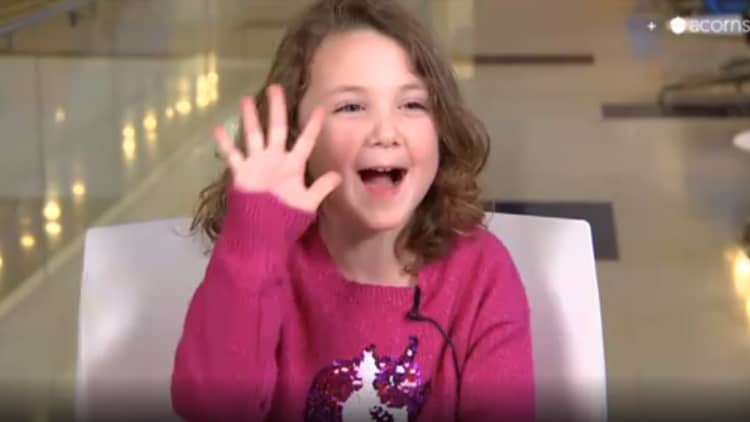The financial hardships many Americans are now facing may have an unintended effect on their children — it may actually help their kids develop a money mindset very early.
Just like children of the Depression emerged as frugal spenders, those experiencing the coronavirus pandemic may also learn important financial lessons.
"Depending on their comprehension and age level, kids are going to come away with knowing the importance of planning and saving," said Deborah Goldberg, president of the National Association of State Treasurers and state treasurer of Massachusetts.
Children are witnessing a pivotal moment in history.
Their mother or father may be one of the 26 million who filed for unemployment since the crisis began. Their parents may also be struggling to pay the bills, given that more than half of Americans can't cover a $1,000 emergency, according to Bankrate.
More from Invest in You:
Go to college or not? Students face a new reality due to coronavirus
Don't let your coronavirus anxiety cause you to make these money mistakes
Picking a side hustle for your pandemic extra cash
They may also be watching as their parents become more efficient with their money and do things like cook more at home instead of ordering out.
"One of the things that should be abundantly clear to the parents of children is that life is completely unpredictable," Goldberg said. "We have to educate our kids and prepare them, particularly when it comes to having financial stability."
Resources abound, if parents know where to look.
One place you can check out is the website for your state treasurer's office, or even that of another state.
For example, Massachusetts has advice on how to teach your kids about money, and Missouri has launched a new financial literacy portal that has activities for kids, including interactive lessons and online games. Additionally, the Consumer Financial Protection Bureau dedicated resources for children on its Money as You Grow page.

Friday is also "Teach Your Children to Save Day," which the American Bankers Association Foundation started 23 years ago.
This year, it takes on special meaning, said Corey Carlisle, executive director of the ABA Foundation.
"Unfortunately, this is a teachable moment," Carlisle said.
"We don't want children to associate money with fear," he added. "We want kids to understand how to navigate these rough waters."
Some 250 banks to 300 banks are participating, but have turned to virtual classrooms instead of going into schools to share financial knowledge. While they are working with educators, look at your own bank's website to see if it, too, has tips.
The ABA also has online resources, such as "Bankers and You Bingo" game instructions, "Needs vs. Wants" coloring sheets, and personal finance tips for young children.
Financial lessons
To teach your kids about money, start talking to them and instilling money values when they are young.
"If it isn't instilled at such a young age, it is going to be a lot harder for them to learn later in life," said Kelly Ryan, head of independent wealth management at State Street Global Advisors and the parent of three boys under age 10.
When talking, use age-appropriate, basic language.
"There is no need to overcomplicate finances," Ryan said. "We don't want to turn off kids. We want them to be intrigued."
She suggests having kids save their money in a big, clear jar so they can see it. When they want something, they can dip into that savings and see the effect of a purchase.
Turning to books may help younger kids understand money concepts.
Treasurer Goldberg said she has often used "Alexander, Who Used to Be Rich Last Sunday" with younger kids, but also suggests titles like "Just a Piggy Bank," "Bunny Money" and "Bernstein Bears' Trouble with Money."

As children get older, you can talk about things like saving, giving and compound interest. Let them save some of their money, spend some of it and give some to charity.
Another thing Ryan does is buy a stock for each of her kids' birthdays. As they got older, they got to pick the security — based on their interests, not any financial charts.
By the time they reach 21, they'll have a "really cool portfolio of 21 securities," she said.
In the end, parents just need to remember to be realistic and understand that everyone's learning is different — especially in this current environment.
"You need to be attuned to your kids' learning style and what works, and not to be afraid to explain what is going on," said ABA's Carlisle.
"Kids watch their parents all day long," he added. "They are going to grow up to be future money managers."
SIGN UP: Money 101 is an 8-week learning course to financial freedom, delivered weekly to your inbox.
CHECK OUT: How to use your stimulus check to invest for the future via Grow with Acorns+CNBC.
Disclosure: NBCUniversal and Comcast Ventures are investors in Acorns.






